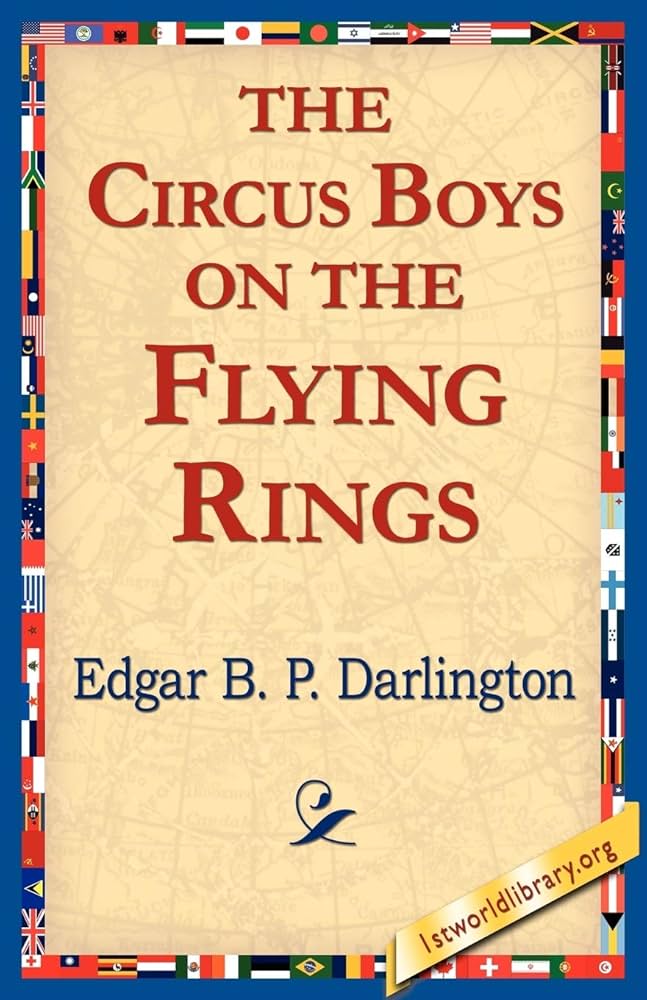Chapter XXIII — The circus boys on the flying Rings
byChapter XXIII sets the stage with Phil Forrest making a bold entrance astride Emperor, the elephant, much to the amazement of the town and circus crew. His unexpected return is more than just dramatic flair—it’s a signal that trouble is close behind. Phil urgently warns the team of a group approaching, demanding to claim Emperor, which sends the entire circus into a moment of uncertainty. Mr. Sparling’s calm leadership takes over as he meets the threat head-on, refusing to surrender either Phil or the elephant without legal proof. His assertive response turns potential conflict into business opportunity when the would-be pursuers are offered tickets—at full price. This twist not only resolves the issue but cleverly turns hostility into paying audience, further solidifying the circus’s community savvy and Mr. Sparling’s authority.
As tensions ease, Mr. Sparling privately reassures Phil, who worries his actions may have caused harm or disruption. Rather than reprimand, Sparling praises Phil’s courage and instincts, recognizing that sometimes doing the right thing means taking a risk. Phil’s decision to stand his ground is not taken lightly, but it’s seen as a sign of growing wisdom and devotion to the troupe. The damages caused, though costly, are offset by the loyalty Phil earns and the attention drawn to the show. Mr. Sparling’s willingness to cover expenses reflects not only his business acumen but a deep trust in Phil’s judgment. As the story unfolds, Phil’s self-doubt gives way to quiet pride, grounded not in applause but in knowing he stood up for what mattered.
Later, a practice session with Teddy hints at deeper issues within the circus. Casual remarks and backstage tension reveal that jealousy may be brewing, directed subtly at Phil’s rising status. Despite being well-liked by most, it’s clear that not everyone shares in his success with a clean heart. A growing sense of unease is cast over their routine, even as the show moves forward. These internal frictions go largely unspoken, but the impact begins to show. It’s not just the dangers of the aerial acts or unexpected weather that pose threats—it’s human emotion, pride, and ambition that bring hidden risk to their carefully balanced performances.
That danger manifests during a high-stakes show in Canton, Ohio. As the storm intensifies, tension peaks both in the air and among the performers. Suddenly, a mishap during the flying rings act results in a serious fall. Signor Navaro is injured, bringing the performance to a halt and raising questions about what went wrong. Later, in a quiet moment filled with vulnerability, Navaro confesses to Phil that jealousy drove him to tamper with the act. The admission is as painful as the injury, but it’s met not with anger, but compassion. Phil listens, understanding the pressure that life in the spotlight brings, and forgives him without hesitation.
By choosing to keep the confession private, Phil demonstrates a rare mix of strength and empathy. He protects Navaro’s dignity while reaffirming his own role as a leader, not just in skill but in heart. His actions ripple quietly through the troupe, reinforcing bonds built on respect rather than rivalry. As Navaro recovers, a mutual understanding takes root—one that acknowledges human frailty and the value of second chances. Phil’s maturity in this moment stands as proof that character is built not only in moments of glory, but in how one responds to betrayal. It’s this quiet integrity that cements his place within the circus family.
In a world built on illusion and spectacle, Phil’s authenticity shines brightest. He is more than a performer; he’s become a steady force in the midst of chaos. As the chapter draws to a close, it’s clear that Phil’s presence is no longer just valuable—it’s essential. The mystery may have been solved, but its lessons linger. Trust, forgiveness, and quiet leadership form the real foundation of their traveling world, more stable than any high wire or flying ring.

